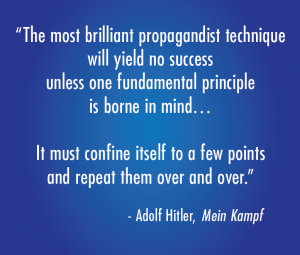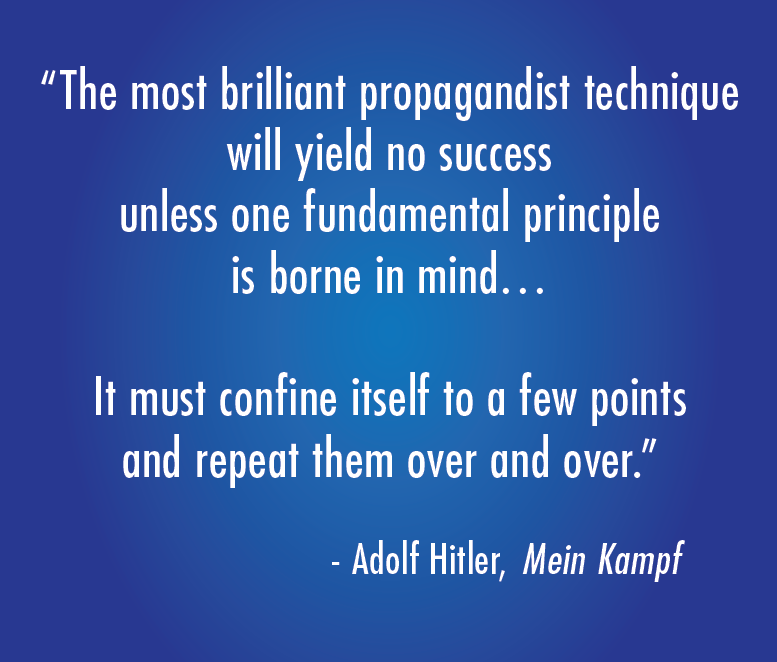Debate is a double-edged sword
The Roman sword, or “gladius,” was made with two sharp edges and it tapered to a pointed end. This made it good for thrusting at close quarters. The Romans adopted it mainly because it was an effective weapon for organized combat against the Gaels, a Celtic army that incorporated large swords, which often needed both hands for combat.
A good debate is akin to a sword fight. Like the gladius, a nimble debater is able to thrust with precision whenever a point is made. A debater wins when the opponent is unable to react and counterattack quickly. If the counterpoint is broad and simplistic then, much like the Gaelic sword requiring both hands, the debate is over.
Such is the case with modern debate, except that now, the heavier sword wins. There is no more respect for the rules. Opponents in modern debate get shouted down, interrupted, or accused of bigotry and ignorance.
One case in point is the 51st anniversary of President Kennedy’s assassination, which will take place Nov. 22. This particular debate concerns whether or not Lee Harvey Oswald was the lone gunman and has involved more years, more documentation and more impassioned arguments than any other watershed moment in American history, with the possible exception of the Lincoln assassination.
In a time when a vast amount of people under 30 gets their news from Jon Stewart, most Americans believe there was a conspiracy. A Nov. 11, 2013, Washington Post article stated “Polls find that between 60 and 80 percent of Americans reject the idea that Kennedy was killed by Oswald acting alone.” Consequently, between 20 and 40 percent of Americans do not agree with a conspiracy theory, yet their arguments are rarely, if ever, heard.
A major voice speaking for this non-conspiracy segment of society is Vincent Bugliosi, who prosecuted Charles Manson to a life term for the Tate-LaBianca murders of 1969.
In 2007, Bugliosi wrote “Reclaiming History: The Assassination of President Kennedy,” a brilliantly assembled, exhaustive, 1,612-page case for Oswald acting alone.
The kernel of Bugliosi’s thesis began as a BBC-produced 1986 film that documented a mock trial with Bugliosi as Oswald’s prosecutor. Bugliosi then spent the next couple of decades coming to the same conclusion Gerald Posner had reached in his 1993 book “Case Closed,” which was also the same conclusion reached by the Warren Commission in 1964, that Oswald had acted alone.
What made the book worth reading and considering is Bugliosi’s comprehension of a common thread in American society’s post-1963 psyche. He knew how badly many Americans needed for there to be a conspiracy, and also understood that the monumental rock of offense that positioned itself in the way of reasoning for most American citizens − that the iconic, ethereal flame of John Kennedy’s legacy could simply not have been extinguished by one nondescript individual, and a misfit at that.
HBO, impressed with the popularity of Bugliosi’s book, picked it up for a mini-series in 2007.
 The slew of conspiracy theorists who believed that either the CIA, FBI, KGB, L.B.J., Mafia, Bay of Pigs refugees or the military industrial complex had killed Kennedy, for once banded together and mounted a campaign to get Bugliosi’s side of the debate quashed. Tom Hanks then stepped in and bought the rights to the book and Bugliosi’s side of the debate will now, after seven years, finally be produced later this year.
The slew of conspiracy theorists who believed that either the CIA, FBI, KGB, L.B.J., Mafia, Bay of Pigs refugees or the military industrial complex had killed Kennedy, for once banded together and mounted a campaign to get Bugliosi’s side of the debate quashed. Tom Hanks then stepped in and bought the rights to the book and Bugliosi’s side of the debate will now, after seven years, finally be produced later this year.
Still, it took seven years. The need for the vocal majority to silence Bugliosi’s dissenting voice is why Voltaire’s saying from 1906, “I may not agree with what you say but I will defend to the death your right to say it,” is on its way out the back door. Debate’s future may not be far behind.
The nation’s appreciation of a good debate has dwindled with precise proportion to the erosion of its attention span. More American television viewers care about “reality” personalities like the Kardashians than know the names of the Justices who serve on the U.S. Supreme Court. People lack patience to hear both sides to a story, especially when most media stories last about as long as a sound bite.
In a media-saturated vortex where talking heads constantly interrupt each other rather than hear each other out and radio personalities shout down opposing viewpoints or even hang up on them rather than give them equal airtime, it is no surprise to hear words like “hater” and “racist” tossed into the fray.
After a while, this strategy prevails. Opposing viewpoints get lost in complacency. Battle-weary opponents tire of such labels, and single viewpoints prevail. The issues of debate lay silent, and the majority consequently rules.
When decisions made by a majority are above those of an individual or minority group, active oppression comparable to tyranny can erode and eventually silence the opposition.
In “Mein Kampf,” Adolf Hitler wrote, “The most brilliant propagandist technique will yield no success unless one fundamental principle is borne in mind…It must confine itself to a few points and repeat them over and over.” In short, if you repeat something enough times, it becomes true.
The viewpoint of the individual will eventually be silenced without the process of debate being practiced. The vocal majority is not infallible. One only need recall the nightmare of U.S. Senator Joe McCarthy’s Communist Red Scare of the 1950s and how CBS news commentator Edward R. Murrow’s fearless opposition to a tyrannical witch-hunt brought that giant down.
Along with the recognition of history possibly repeating itself comes trepidation for the future of the individual voice…it should be heeded. The need for debate is real, albeit hindered. Debate is a sword that should incorporate both sides in order for truth to prevail.


This is without a doubt the most brilliantly conceived commentary in the history of the printed word! I wish I had written it! Oh wait a minute, I think i did…never mind.